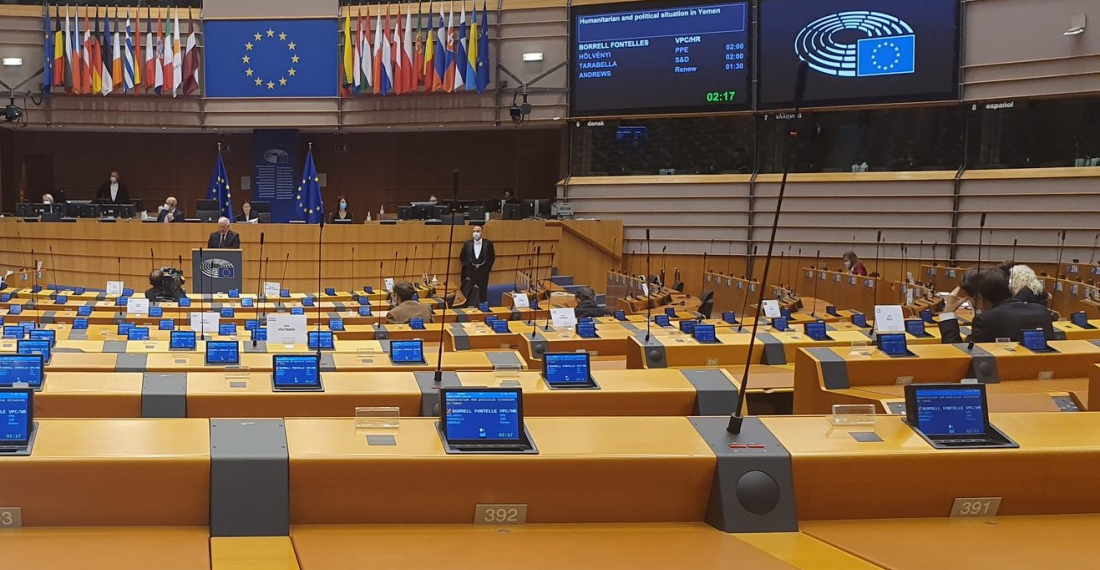The European Parliament discussed the humanitarian and political updates in Yemen this week. The Parliament stressed the need to increase humanitarian support to Yemen.
The Parliament outlined its vision in a resolution released on 11 February, which also marks the 10 year anniversary of the popular uprisings that toppled former president, Ali Abdullah Saleh.
The resolution condemned the ongoing violence since 2015 and recalled that "there can be no military solution to the conflict in Yemen and that the crisis can only be resolved sustainably through an inclusive Yemeni-led and Yemeni-owned negotiation process involving all quarters of Yemeni society and all parties to the conflict;"
Moreover, the resolution supported confidence-building measures with parties to the conflict, with particular
attention to immediate actions such as the full reopening of Sana’a Airport, the resumption of salary payments, the implementation of mechanisms to enable sustained seaport operation.
The resolution also praised the EU efforts to address the humanitarian crisis but has highlighted the current pledges remain insufficient. Therefore, the Parliament suggested that the scale and severity of the crisis should be the starting point for budgetary discussions; It called on the EU to
mobilise additional resources to address the situation in Yemen as part of the Neighbourhood, Development and International Cooperation Instrument programming exercise; urges, more broadly, the Commission and the Member States to further lead international efforts to urgently scale up humanitarian aid, including by fulfilling the pledges made during the June 2020 donor conference for the Yemen Humanitarian Response Plan;
The Parliament also welcomed recent actions by the United States which include ending support for the war and appointing a special envoy for Yemen.
Read the EU Parliament resolution here >>







